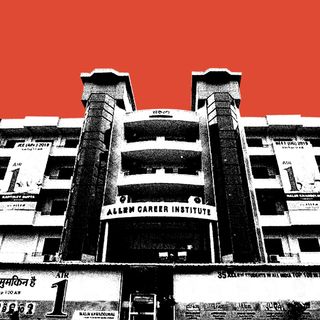
Maharashtra Government Institutes Panel to Track Inter‑Caste, Inter‑Faith Marriages
The panel was set up to ensure women’s families are aware of their marriage, and to establish a resolution between them, if necessary.

The Maharashtra Government has set up a panel to track inter-caste and inter-faith marriages in the state, the Indian Express reported on Wednesday. To be headed by the state’s Women and Child Development Minister, “the Intercaste/Interfaith Marriage-Family Coordination Committee” will collect detailed information on inter-faith and inter-caste marriages. According to the Maharashtra Government, the panel has been set up to provide a platform for women in inter-caste and inter-faith marriages who may be estranged from their families, to communicate with them.
The panel — set up in the aftermath of the murder of a 27-year-old Maharashtrian woman by her partner in Delhi — will collect information on inter-caste and inter-faith couples in the states, including obtaining information from stamp duty and registrar offices. It will get in touch with women in these marriages, as well as with the women’s maternal families, to try to establish whether the women are in touch with their maternal families. In cases where the woman may be estranged from her maternal family, the panel will reportedly try to establish channels of communication between the two parties, hoping to counsel them on resolution and reconciliation.
In a country where women often are denied agency over their own marriages, especially when they choose to marry outside their caste and religion, this mechanism undermines women’s agency further and could make getting married to someone outside one’s own caste and faith even more difficult than it currently is.
In every society, marriage has been a way to strengthen community networks and uphold community ‘purity’ through endogamy. Hence, there are elaborate and specific rules in every faith around the institution of marriage. In a caste society, marriage is also the institution that preserves caste purity. Hence, marrying outside one’s faith or caste is often seen as a transgression. In India, inter-caste and inter-faith couples have often had to pay with their lives, in the form of honor killings. These killings are usually carried out by — or at the behest of — the families of the couples, especially those of women choosing to marry outside their caste or religion. Breaking contact with natal families, then, often becomes a matter of survival. In such a scenario, instituting a panel to re-establish contact between women and their estranged families may endanger the lives of inter-faith and inter-caste couples.
Related on The Swaddle:
Anti‑Caste Activists Propose Bill to End ‘Honor Killings’
In India, marrying outside one’s caste or religion through legal provisions is also a hassle. Although the state introduced the Special Marriages Act, 1954, to ensure the marriage of willing inter-faith and inter-caste couples, the law is riddled with several hoops which often make it difficult for the marriage to come to fruition. Under the Act, both the partners in an inter-faith and inter-caste marriage are required to file a notice with their registrar 30 days prior to the wedding. These notices are displayed publicly in the registrar’s office, during which period any individual can object to the marriage, which in turn allows the registrar to refrain from solemnizing the marriage until they investigate the objection. In recent times, this clause of objection has been repeatedly misused by caste and religious pressure groups to prevent inter-faith and inter-caste marriages.
The public notice required of inter-caste and inter-faith couples before their marriage is already an invasion of their privacy. If earlier a couple managed to escape the scrutiny of their families, caste groups, and religious communities, that would be undone by the efforts of the panel in its bid to ensure “resolution” between the families and the women who left them. The panel ‘tracking’ couples’ relationships with their families, then, is a protectionist and, ultimately, patriarchal tool that reinforces the status quo where community purity is maintained through the control of women.
Further, citing the Delhi murder incident to institute the panel is also a flawed approach. As The Swaddle noted earlier: “the story of the woman remains sordid and incomplete. We know the details of her life as we want to know them — not as they really were… When we subscribe to these narratives, women all over the country are rewritten as victims of future crimes. The experience of life outside the bounds of an imposed morality is even more forbidden — the constant messaging is that unspeakable consequences await those [women] who stray.”
Instituting the panel in the aftermath of the murder, then, seems to not really commit to the safety of women as much as it seems to prove a point: that women are the safest in the hands of their family, community, and state. Instead of ensuring the safety of women endangered by honor crimes for choosing to defy the norms of caste and religion, the panel seeks to push women back to those same institutions that they hoped to escape while choosing to marry with agency. Ultimately, then, the panel is committed more to the institution of family than the real stakeholders in a marriage: the partners.
Amlan Sarkar is a staff writer at TheSwaddle. He writes about the intersection between pop culture and politics. You can reach him on Instagram @amlansarkr.
Related


Govt Discontinues National Fellowship for Minority Students
